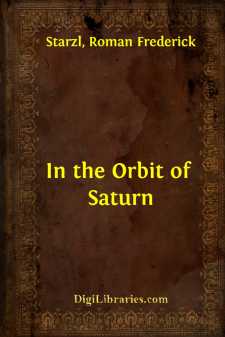Categories
- Antiques & Collectibles 13
- Architecture 36
- Art 48
- Bibles 22
- Biography & Autobiography 813
- Body, Mind & Spirit 142
- Business & Economics 28
- Children's Books 17
- Children's Fiction 14
- Computers 4
- Cooking 94
- Crafts & Hobbies 4
- Drama 346
- Education 46
- Family & Relationships 57
- Fiction 11829
- Games 19
- Gardening 17
- Health & Fitness 34
- History 1377
- House & Home 1
- Humor 147
- Juvenile Fiction 1873
- Juvenile Nonfiction 202
- Language Arts & Disciplines 88
- Law 16
- Literary Collections 686
- Literary Criticism 179
- Mathematics 13
- Medical 41
- Music 40
- Nature 179
- Non-Classifiable 1768
- Performing Arts 7
- Periodicals 1453
- Philosophy 64
- Photography 2
- Poetry 896
- Political Science 203
- Psychology 42
- Reference 154
- Religion 513
- Science 126
- Self-Help 84
- Social Science 81
- Sports & Recreation 34
- Study Aids 3
- Technology & Engineering 59
- Transportation 23
- Travel 463
- True Crime 29
Roman Frederick Starzl
Roman Frederick Starzl was an American science fiction writer active during the early 20th century, primarily in the 1920s and 1930s. He is known for his short stories published in pulp magazines like "Amazing Stories," where his work contributed to the Golden Age of Science Fiction. Notable works include "The Planet of Dread" and "The Death Men of Sirius," which feature space exploration and alien encounters. Though his literary output was limited, his imaginative stories have earned him recognition as a pioneer of early space opera.
Author's Books:
Sort by:
The Celestia, gliding through space toward Titan, major satellite of Saturn, faltered in her course. Her passengers, mostly mining engineers and their wives, stockholders, and a sprinkling of visitors, were aware of a cessation of the heavens' apparent gyrations, due to the halting of the ship's rotation on its axis. At the same time the ship's fictitious gravity, engendered by the...
more...
Strange Intruder Sime Hemingway did not sleep well his first night on Mars. There was no tangible reason why he shouldn't. His bed was soft. He had dined sumptuously, for this hotel's cuisine offered not only Martian delicacies, but drew on Earth and Venus as well.Sime Hemingway, of the I. F. P., strikes at the insidious interests that are lashing high the war feeling between Earth and...
more...



